Core Impact


Opening Event for the Centennial of the Core Curriculum
On September 27, Columbia College kicked off its year-long Core Centennial celebration with a launch event in Low Rotunda. The 2019–2020 academic year marks the 100th anniversary of Introduction to Contemporary Civilization in the West — commonly called Contemporary Civilization or “CC,” and the oldest course in the Core Curriculum.
Students, alumni, faculty and staff filled the room as the morning began with a welcome from Columbia University Board of Trustees Co-chair Jonathan Lavine CC’88, who spoke about the lifelong values of the Core before introducing Columbia University President Lee C. Bollinger. Bollinger remarked on the importance of the Core Curriculum not just for Columbia College but for the University as a whole.
“There is no question in my mind that the very identity of Columbia University is linked to the Core Curriculum,” Bollinger said.
Columbia College Dean James J. Valentini went on to share his own reflections on the Core Curriculum.
“The Core is the product of human invention, a product of the action of conscious human forces with the most decidedly human value in mind,” Valentini said. “And that value is realized in a human context that is constantly changing.”
He continued with an assertion of the Core’s dynamic nature.
“It is not a national monument. It is not a Columbia College monument,” said Valentini. “It is alive and responding to that changing context. All the time.”
Valentini challenged the audience to think about how the Core would continue to evolve over the coming years.
"What precisely are we trying to achieve in the Core overall and in each of its components? How do we maintain the continuity of that purpose?” Valentini asked. “How do we keep a focus on those objectives while ensuring a contemporary approach that continues to validate the Core?"
In a panel following Valentini’s remarks, several alumni and faculty spoke on a panel regarding their experiences with the Core as students, as professors and, in some cases, as both. Moderated by journalist Claire Shipman CC’86, members of the panel included University Professor and Nobel Prize-winner Richard Axel CC’67; Patricia Kitcher, the Roberta and William Campbell Professor of the Humanities; Li Lu CC’96, founder of Himalaya Capital; Gareth Williams, the Anthon Professor of Latin Language and Literature; and Sheena Wright CC’90, president and CEO of United Way of New York City.
From recollecting their favorite Core books to an appreciation for Core values, panelists shared their most memorable Core classroom experiences.
“Going through that experience [of the Core] was extraordinarily liberating and has been a lifelong, humbling experience,” Lu said.
Wright echoed his sentiments. “My voice mattered just as much as anyone else in that room,” she said. “I was able to bring new ideas and new thinking.”
Axel spoke to his experience in Literature Humanities.
“Nowhere is the richness of human activity, not in science certainly,” said Axel. “Nowhere is its variousness, its complexity, more richly and precisely described than in literature.”
Speaking from the professorial perspective, Kitcher and Williams also offered their insights.
“There’s this atmosphere of genuinely cooperative learning,” Kitcher said. “We’re all going to try to figure it out together.”
“When you come to the Core Curriculum, you tend to see correspondence and connectivity of knowledge,” Williams said.
Watch the Core Stories Panel here.
In a brief break after the panel, guests were invited to share their “Core Stories” at a video booth, to take a photo of themselves in a superimposed image of a Core-related art piece and to virtually visit the Amiens Cathedral — studied in Art Humanities — through the use of VR goggles.
[Visit the Community section to read #CoreStories or share your own!]
A second panel, “Enduring Core,” was moderated by Lisa Hollibaugh, dean of Academic Affairs at the College, and included the current chairs of all five courses in the Core Curriculum — Noam Elcott, associate professor of art history and archaeology, and chair of Art Humanities; David Helfand, professor of astronomy and chair of Frontiers of Science; Emmanuelle Saada, professor of French and romance philology, and the Carnoy Family Program Chair of Contemporary Civilization; Elaine Sisman, the Anne Parsons Bender Professor of Music and chair of Music Humanities; and Joanna Stalnaker, professor of French and romance philology, and the Paul Brooke Chair of Literature Humanities.
Watch the Enduring Core Panel here.
The Core Centennial celebration continues throughout the 2019–2020 academic year and will include exhibitions, events and programming for the entire Columbia community to be held in the spring.
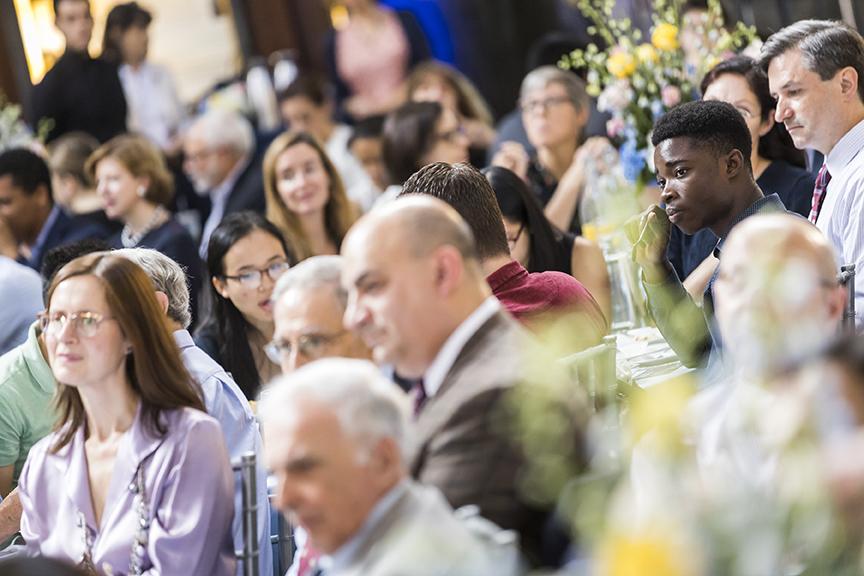
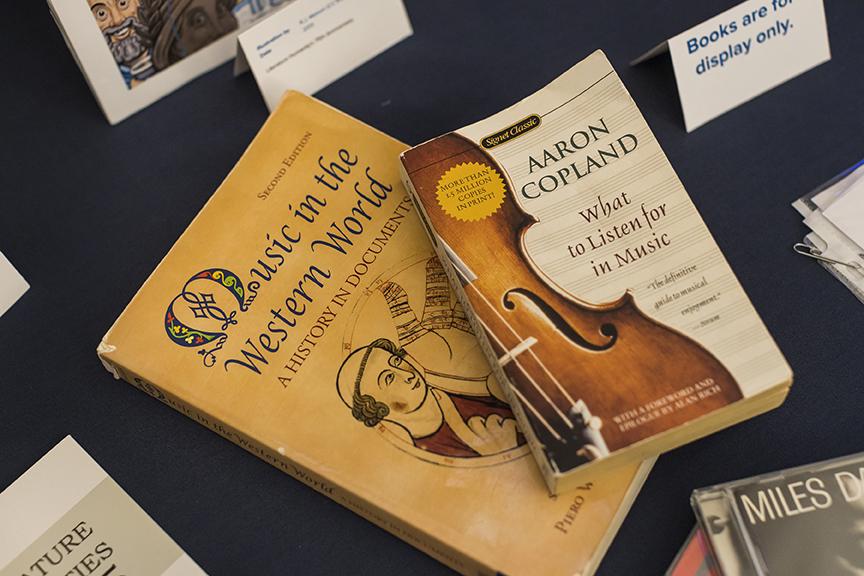
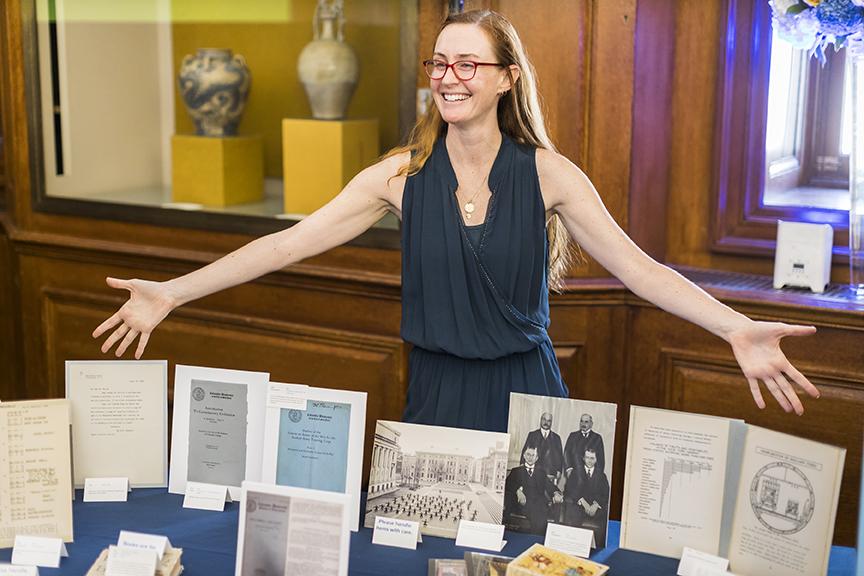
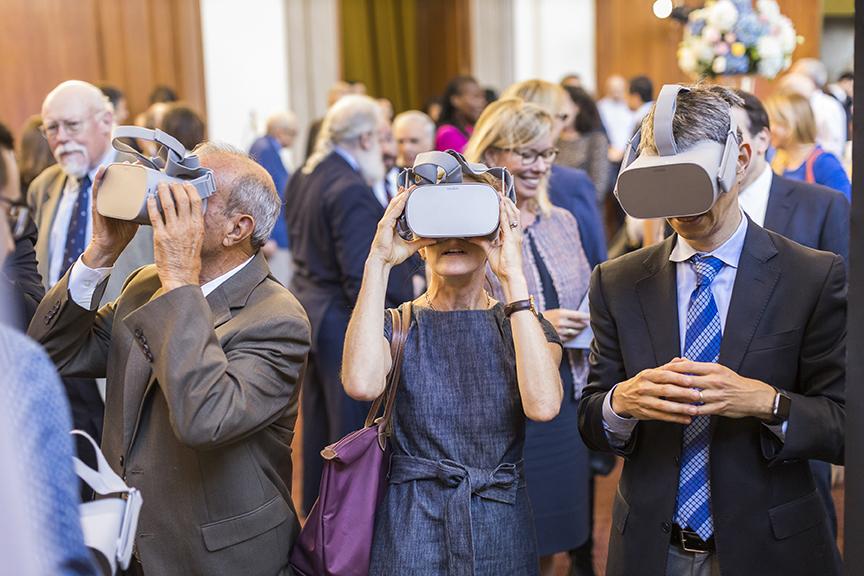
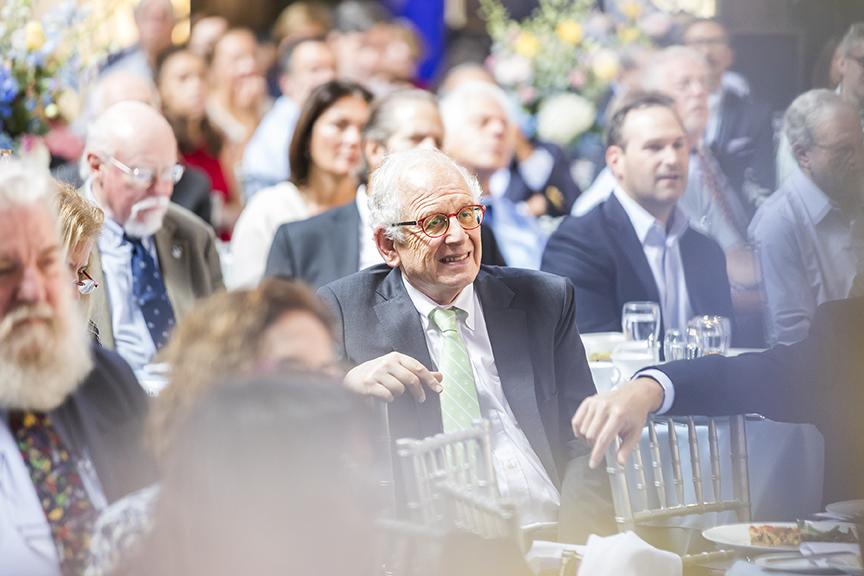
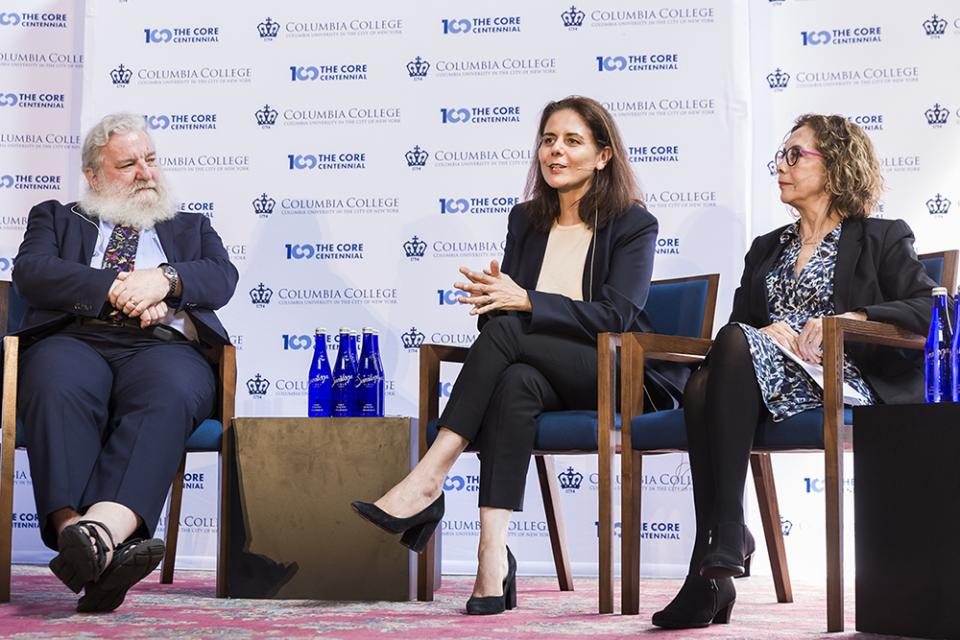
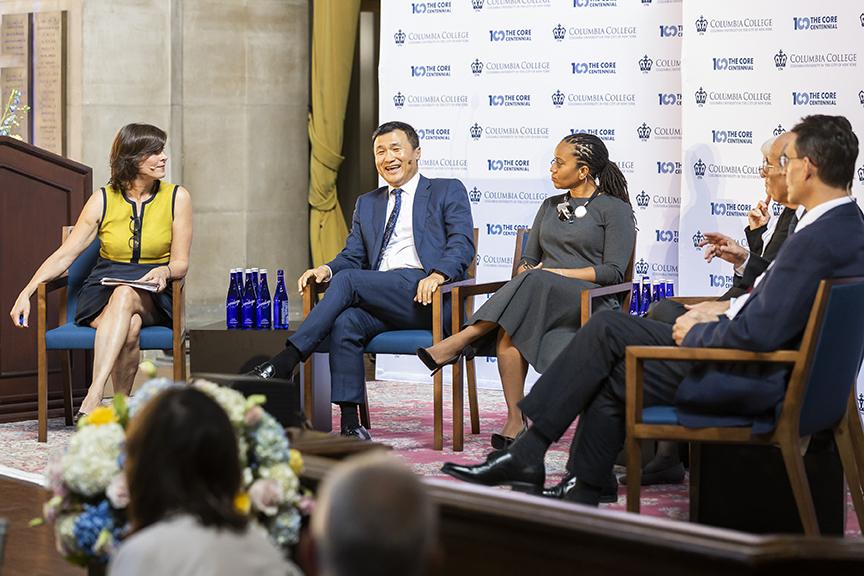
View more photos from the event on our Facebook page!

Please log in to comment.